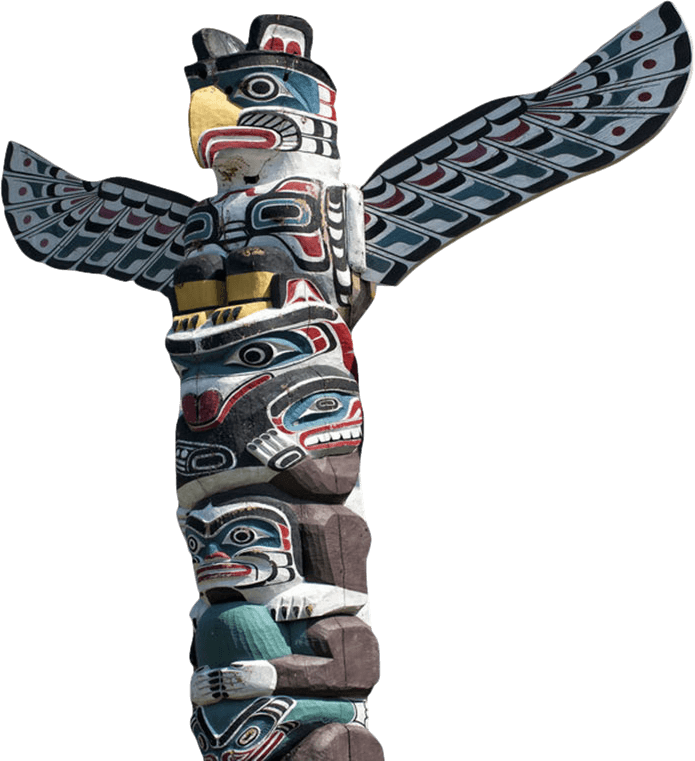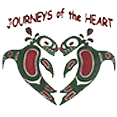Journeys of the Heart Cultural Learning and School Readiness Program
Days and Hours of Service:
- Ruth King 2764 Jacklin Road
Tues / Thurs – 9:30 to 12:00 PM and 1:00 to 3:30 PM - Each child is connected to a Caregiver Support Worker who provides outreach, in home support specific to child development (approx. once a month) and/or community referrals.
Referral sources:
- Referrals can be made by community professionals, social workers, and self-referrals.
Program Description
The Journeys of the Heart (JOH) program is a ten-month cultural learning program for Indigenous children age 2 to 5 years old and their families caregivers. The JOH program nurtures a child’s cultural identity while preparing them for the education system. The JOH program also will provide children and their caregivers with skills and tools to promote transition into the public-school system.
Needs Addressed
Philosophy
The philosophy of the program is to provide opportunities to foster the intellectual, spiritual, emotional, and physical development of Indigenous children and to support parents as primary teachers of their children. This fostering recognizes and supports the traditional roles of extended family members in the education of Indigenous children, and maintains that the program works with and support of local community programs.
Service modalities and Broad Strategies:
Curriculum and language revitalization
Program curriculum is designed to reflect an Indigenous world view incorporating the values, beliefs, and practices of Indigenous cultures while placing emphasis on Provincial Educational Standards that will aid in preparing your child for Kindergarten. The curriculum is divided into four seasons, with each season reflecting cultural practices associated to that season. Themes include: animals, family, community, food, transportation, speech and local languages. Each curriculum book addresses four categories of development which include: movement, fine motor control and hand eye coordination.
Moe the Mouse
Moe the Mouse is an innovative early learning speech and language development program that uses Indigenous toys and stories to enhance language development in children ages 2-5 years. This gives children the opportunity to practice language skills while having fun.
Wing Chief Ceremony
The purpose of the Wing Chief Ceremony is to foster leadership skills within the child. It promotes a sense of responsibility to their classmates and to their environment. It educates the children on one aspect of Indigenous government and emphasizes their importance with Indigenous society.
Once circle time is completed, a ceremony is held where one child is designated the Wing Chief for the day. The child’s duties will include: beating the drum to announce transition times for the children and caregivers, helping set up Activity Book supplies for each table, serving snacks to their classmates.
Snack Time
Snack time occurs after curriculum time. Snack time emphasizes the importance of healthy eating and nutrition. As we wait for all participants to sit down, we sing songs. When everyone is back we sing our Please and Thank you song and then our Prayer. We ask that all participants be seated while eating. When finished please place dishes in the bin provided, wash hands and face before heading to the carpet to a quiet activity before heading outside.
Clean-up time
The caregiver whose child has been designated Wing Chief for that day is to act as a support to their child in these duties.
7 Teachings
The traditional concepts of respect and sharing that form the foundation of the Indigenous way of life are built around the 7 natural laws, or scared teachings. The 7 teachings are woven into the daily schedule and values of the program. Each theme will be focused on for 5 weeks of the program.
Gym Time
As often as the schedule permits we take the families to the gym for Gym time. When preparing to go to the gym it is the caregivers’ responsibility to get their child/ren ready for the gym and to walk them with the group. Once in the gym, as in the classroom, it is the caregivers’ responsibility to take the child/ren to the washroom or get them a drink. The benefit is to encourage active living, exercise, and a healthy team spirit.
Sport ball
Sport ball is a fun way to introduce the children to structured physical activity at an age appropriate level. The staff adapts a variety of sports to meet the development of the children participating. This requires caregivers’ involvement to role model participation for the children.
Home Time
Prior to home time the children are given a signal that the end of the day is upon us. We gather the children to sing the See You Soon song. This is to ease the transition from program to home.
Summer Time
During the summer months, when program is not in session, family events are planned once per month. Families are contacted prior to the outings and transportation is provided if needed.








Follow Us!